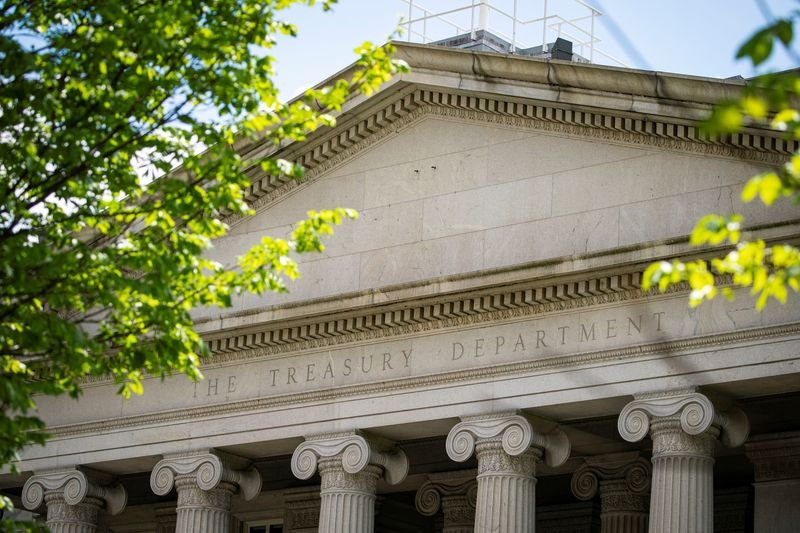By Andrea Shalal
WASHINGTON (Reuters) -A top U.S. Treasury official on Thursday called out emerging official creditors – the biggest of which is China – for curtailing loans to countries that had already embarked on a program with the IMF or multilateral development banks.
“When the IMF and MDBs support countries’ reforms and investment plans, Fund shareholders should not be withdrawing their own financing,” Treasury Undersecretary Jay Shambaugh told an event at the Peterson Institute for International Economics.
He said there was a longstanding historical precedent among the Paris Club of official Western creditors to engage in refinancings or reprofilings for borrowers and not to pull out when the going got rough.
“No individual creditors should be free-riding by pulling funds out of a country while it is implementing IMF- and MDB-supported reforms, and other bilateral and multilateral creditors are refinancing or rolling over funds, or injecting new resources,” he said.
Shambaugh said decisive, coordinated action was needed by all official bilateral creditors to address the worsening financial challenges faced by low- and middle-income countries and to speed up debt relief when needed.
Many developing countries faced “alarming tradeoffs” due to falling inflows of official bilateral and private funds at a time when debt service payments were also rising, he said.
Shambaugh said measures were also needed to help developing countries with significant external market debt continue to be able to tap private funds at affordable terms and over longer time horizons, so that private outflows did not net against support from the international financial institutions (IFIs).
The U.S. Treasury official’s comments reflect growing frustration among Western countries and debtor nations about Beijing’s foot-dragging on debt restructuring efforts and the slow pace of debt relief deals.
The Chinese embassy in Washington did not immediately response to a request for comment.
Shambaugh, who just returned from Beijing with Treasury Secretary Janet Yellen, said sovereign debt issues were a frequent and recurring subject of bilateral discussions.
He said it was in everyone’s interest to avoid major solvency problems and not let six-month delays in financing assurances unravel IMF programs.
He told participants that developing countries were spending more to service their public and private debt than they were receiving in fresh funds, with the outflows going largely to China and other emerging official creditors and private lenders.
Almost 40 countries saw external public debt outflows in 2022, and the flows likely worsened in 2023, he said, noting that Sub-Saharan African countries had been unable to access bond markets at all last year.
To counteract the trend, Shambaugh said official bilateral creditors should pledge to sustain net positive flows to countries that were pursuing responsible policies, especially when the IMF and the multilateral development banks (MDBs) had backed their reforms and investment plans.
Dozens of low- and middle-income countries had negative net debt flows from Chinese public and private creditors.
Shambaugh also called once again for changes to ensure that the G20 Common Framework set up to guide debt restructurings for low-income countries produced deeper and more timely restructurings.
He said the United States and other creditors had sharply scaled back loan exposures to developing countries following a wave of debt treatments in the 1980s and 1990s, and were now providing far more grants to these borrowing countries.
For example, Washington had disbursed nearly $70 billion in aid to Sub-Saharan African countries over the past five years, nearly seven times the net debt flows from all Chinese creditors, he said, saying it would be “helpful” if more emerging creditors made the shift.
He also said private funds should not be flowing out of developing countries with strong macro frameworks, calling for creditor countries to encourage continued private sector engagement through credit enhancements and borrower protections.
Countries should also create safe harbors for borrowing countries seeking proactive relief from private debt distress on a voluntary basis, he said.
(Reporting by Andrea Shalal; Editing by Tom Hogue and Josie Kao)

